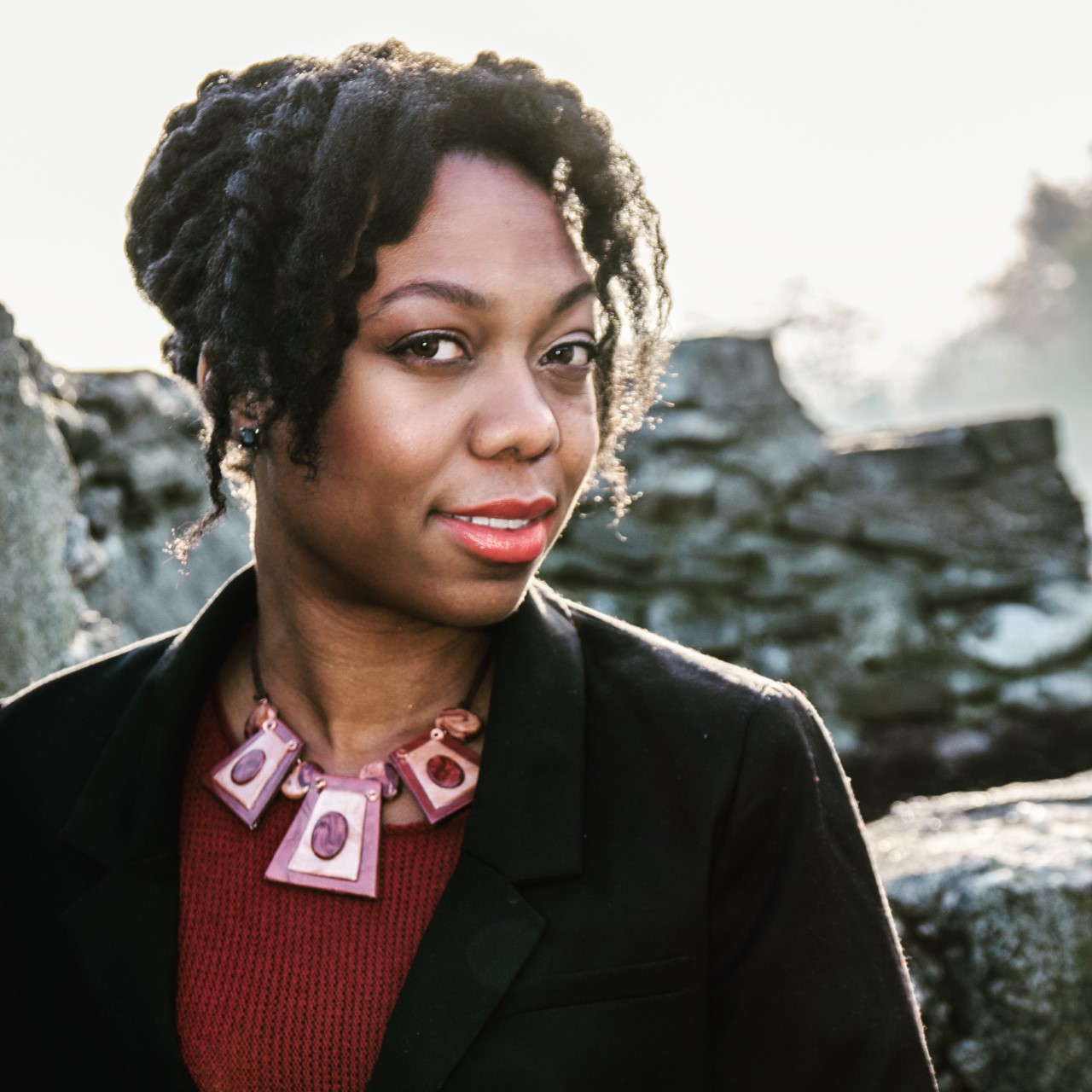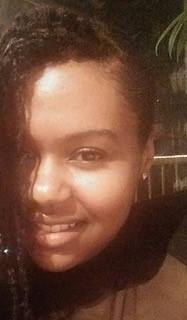
The CAREB-ACCER Board of Directors (“BOD”) has made a commitment to engage in cultural competency training and make accessible to its membership and the broader Canadian research community, cultural competency training with an initial focus on anti-Black racism and equity education in support of its efforts to dismantle existing systems of oppression within the Canadian research ethics sector.
Objectives
As a national research ethics organization with a vision to: (1) promote professionalism through the sharing of expertise, experience, information and knowledge; (2) represent and communicate the perspectives and concerns of Research Ethics Board (REB) professionals in local, national and international policy development and implementation; and (3) provide education and resources needed to successfully promote the ethical conduct of research CAREB-ACCER is obligated to be part of leading the change in the Canadian Human Research Ethics field as it relates to Anti-Black Racism. In order to do this CAREB-ACCER, has embraced the important concepts of:
- Accountability, specifically individual and organizational accountability; and
- Learning through this Initiative.
Rationale & Purpose
Through a focus specifically on anti-Black racism, and a commitment to unlearning our own biases and minimizing our role in reinforcing systems of oppression CAREB-ACCER is equipped to lead the charge in the Canadian Human Research Ethics field as it relates to addressing anti-Black racism and all forms of racism and prejudice within the research ethics field. Our focus on anti-Black racism is an important distinction given the absence of discussion, action and focus on this issue in the broader area of diversity and anti-oppression work in the Canadian Human Research Ethics space. With the work we have begun in our own learning and unlearning, the under representation of this issue in the Canadian research ethics context (both content and education) and our national and international reach, we are committed to addressing anti-Black racism. Through this work we strive to be an enabler in solving a lot of the systemic issues that affect populations that are victims of racism, oppression and prejudiced systems in the Human Research Ethics space through education, awareness and action. As a national organization and leader in research ethics, it is critical that we enable and encourage anti-Black racism discussions, education and action to equip research ethics boards and researchers on how to approach research with an equitable and diverse lens.
Our Anti-Black Racism Research Ethics Education and Discussion Series creates a safe space to learn, discuss and consider the connections between intersectionality, the research process, and ethics as it relates to anti-Black racism in the Canadian context.
Goals
Through cultural competency education, storytelling and creating tools and resources for research ethics boards, research ethics professionals and researchers to use in their daily practices, this session is one of a five part series developed to equip researchers, research ethics boards and research ethics professionals with tools and resources to address anti-Black racism in their work.
This series is part of CAREB-ACCER’s six part action plan focused on dismantling existing systems of oppression within the Canadian research ethics sector.
Facilitators

Lydia-Joi Marshall
Lydia-Joi currently serves on the board of the Black Health Alliance, a not for profit organization which works tirelessly to reduce health disparities in diverse Black communities in Canada. Academically she lends her expertise from her BSc. in Biology from Western University and MSc. in Human Genetics from Howard University.
Lydia-Joi consistently strives to bring awareness to issues of health inequity and to promote personalized patient care. Her passion for health care has extended across various disciplines, including her current work in addressing barriers to living organ donation as a researcher with the Kidney health education and research group at University Health Network in Toronto.

Rhonda C. George
Professor Rhonda C. George is an award-winning emerging scholar and sociologist who explores the social and intersectional dimensions of race, racialization, and racial stratification within social institutions as it pertains to sport, education, and health care systems. Broadly speaking, her multidisciplinary work interrogates the specific ways in which Black populations in the U.S. and Canada experience, navigate, and resist systemic racial barriers. Her current work uses Critical Race theoretical paradigms and community-based methodologies to explore the roots of medical mistrust within Black Canadian communities.
Critical Reflection Questions
1.Many of you acknowledged that anti-Black racism has been a barrier in the Canadian research landscape, can you identify some specific ways in which this manifest in your work?
2.If you identify as non-Black how do you think that this institutional anti-Black racism has impacted your Black colleagues? If you identify as Black, what immediate supports would alleviate some of the
impacts of anti-Back racism in your work?
3.For those who shared that you had little or no Black Canadian or anti-Black racism training, how do you think this has impacted your potential for advocacy in your position?
Websites and Videos
AfroMetis – Celebrating the history, struggles and contributions of people with
mixed Black and Native Atlantic Canadian ancestry
Sir George Williams Affair (Concordia) – Documentary ( Ninth Floor)
Reading List
Briggs, A. Q. (2020). Getting a foot in the door: A critical anti-race analysis of underemployed second generation Caribbean black male youth. Education, Citizenship and Social Justice, 16(2).
Calliste, A. (1994). Race, gender and Canadian immigration policy: Blacks from the Caribbean,1900-1932. Journal of Canadian Studies, 28(4), 131-148.
Chopra, R. (2018). Almost home: Maroons between slavery and freedom in Jamaica, Nova Scotia, and Sierra Leone. Yale U Press.
Chopra, R. (2017). Maroons and Mi’kmaq in Nova Scotia, 1796-1800. Acadiensis, 46(1), 5-23.
Clairmont, D. H., & Magill, D. W. (1999). Africville: The life and death of a Canadian Black community. Canadian Scholars’ Press.
Cooper, A. (2007). Acts of resistance: Black men and women engage slavery in Upper Canada,1793-1803. Ontario History, 99(1),5-17.
Cooper, A. (2007). The hanging of Angélique: The untold story of Canadian slavery and the burning of Old Montreal. University of
Georgia Press.
Foster, C. (2019). They Call Me George: The Untold Story of Black Train Porters and the Birth of Modern Canada. Biblioasis.
George, R. C. (2020). Holding It Down? The Silencing of Black Female Students in the Educational Discourses of the Greater Toronto
Area. Canadian Journal of Education, 43(1), 32-58.
George, R. C., Maier, R., & Robson, K. (2020). Ignoring race: A comparative analysis of education policy in British Columbia and
Ontario. Race Ethnicity and Education, 23(2), 159-179.
Henry, F., Dua, E., James, C. E., Kobayashi, A., Li, P., Ramos, H., & Smith, M. S. (2017). The equity myth: Racialization and indigeneity
at Canadian universities. UBC Press.
Henry, N. L. (2010). Emancipation day: Celebrating freedom in Canada. Dundurn.
Henry, N. (2019). Where Are The Black People?. Perspectives of Black Histories in Schools, 179.
James, C. E., Robson, K. L., & Gallagher-Mackay, K. (2017, May 19). Universities have a serious data gap on race. University Affairs.
http://www.universityaffairs.ca/opinion/in-my-opinion/universities-serious-data-gap-race/
James, C. E., & Turner, T., George R.C., Tecle, S. (2017). Towards race equity in education: The schooling of Black students in the
Greater Toronto Area. Toronto, Ontario, Canada: York University.
Johnson, M. A. (2012). To ensure that only suitable persons are sent”: Screening Jamaican women for the West Indian Domestic
Scheme. CE James & A. Davis, Jamaica in the Canadian experience: A multiculturalizing presence, 36-53.
Lockett, J. D. (1999). The deportation of the Maroons of Trelawny Town to Nova Scotia, then back to Africa. Journal of Black Studies,
30(1), 5-14.
MacDougall, G. (2010). Report of the independent expert on minority issues: Mission to Canada. United Nations.
Robson, K. (2021). An Essay on the Challenges of Doing Education Research in Canada. Journal of Applied Social Science,
19367244211003471.
Rudder, A. J. (2004). A black community in Vancouver? A history of invisibility [Masters Thesis, University of Victoria]. https://
dspace.library.uvic.ca/bitstream/handle/1828/733/rudder_2004.pdf?sequence=1
United Nations. (2017a). Concluding observations on the twenty-first to twenty-third periodic reports of Canada. United Nations.
United Nations. (2017b). Report of the working group of experts on people of African descent on its mission to Canada. https://
ansa.novascotia.ca/sites/default/files/ files/report-of-the-working-group-of-experts-on-people-of-african-descent-on-itsmission-
to-canada.pdf
Walker, B. (2011). Done with Slavery: The Black Fact in Montreal, 1760-1840.
Walker, B. (2009). Finding Jim Crow in Canada, 1789–1967. A history of human rights in Canada: Essential issues, 81-98.
Walker, B. (Ed.). (2008). The history of immigration and racism in Canada: Essential readings. Canadian Scholars’ Press.
Whitfield, H. A. (2007). Black Loyalists and Black Slaves in Maritime Canada. History Compass, 5(6), 1980-1997.
Summary
Dr. Tabi shared with us the experience of being a Black professor and the ways in which he has
been challenged while moving through an academic system that often is not intended to support his
voice or trajectory. Withstanding the emotional labour of having limited representation to look to
while being expected to speak on behalf of the vastly diverse voices of the Black community, has
been a challenge that he has risen to and is paving the way the dismantle the historic barriers those
following his path has experienced.
Dr. Tabi was especially encouraged by the session that he attended and appreciative of how our
group leaned into the learnings: “I was particularly impressed by the activities, specifically how
those participating gained understanding through working through the issues brought up during our
conversations.”
Sharing in these lived experiences challenges us to recognize where bias exists and how they present
themselves in the research and academic pathways. The hope is that all who engaged in this
conversation will be able to lead with empathy in dismantling anti-Black racism in their personal
spheres.
Critical Reflection Questions
1) In many ways, the barriers discussed elucidated how the trajectories of Black scholars can
be derailed. Which other areas in the research process can you identify where anti-Blackness
and/or implicit bias is operating?
2) In which ways does the peer review process, particularly for grant funding appear neutral on
its face, while creating additional barriers for racialized scholars such as Black researchers?
3) While we often refer to “social structures”, those social structures are made of people who
are enacting particular worldviews and epistemological stances. How do individuals who
help make up and animate social structures, engage identify and unpack their own
positionalities?
Reading List
Bell Jr, D. A. (1980). Brown v. Board of Education and the interest-convergence dilemma. Harvard
law review, 518-533.
Delgado, R., & Stefancic, J. (2017). Critical race theory. New York University Press.
George, R. C., Maier, R., & Robson, K. (2020). Ignoring race: A comparative analysis of education
policy in British Columbia and Ontario. Race Ethnicity and Education, 23(2), 159-179.
Harris, C. I. (1993). Whiteness as property. Harvard law review, 1707-1791.
McGee, E., Griffith, D., & Houston II, S. (2019). “I know I have to work twice as hard and hope that
makes me good enough”: Exploring the stress and strain of Black doctoral students in
engineering and computing. Teachers College Record, 121(4), 1-38.
Summary
Thank-you for continuing to join us in this work to deconstruct anti-Black racism in our paths. It was a time of mutual growth as we pushed each other to further challenge our comforts and systemic norms.
We encourage you to keep engaging with your reflexivity journals as we continue to evaluate the ways in which your positionality provides a complex and sometimes even contradictory proximities and/or distances to the power which shapes the experiences and outcomes of others. The decisions you make can have very far-reaching and deleterious effects on Black communities.
Critical Reflection Questions
To reflect on this, grapple with the following questions:
1) What do we want to build differently?
2) What are you willing to do?
3) How does your positionality shape your responses to questions 1 and 2?
We look forward to continuing the conversation on January 07, 2022 ( yes, the new year is here!) with some of our colleagues who will share some concrete and effective models of how to bring about the changes we have been discussing.
Continue to take care of yourselves and those around you.
Reading List
Films
Netflix: Colin in Black and White (documentary)
o This films offers great insights into the ways in which positionality through words, actions and interpretation of events can inform access to power and worldviews and even with “good intentions” can do grave harm to Black people on the receiving end. Music Theory and White Supremacy
o https://www.youtube.com/watch?v=Kr3quGh7pJA
Reading: Link to the Minnesota Historical Society’s Resource on White Supremacy Cultures: https://www.thc.texas.gov/public/upload/preserve/museums/files/White_Supremacy_Culture.pdf
Books/Articles
Baldwin, A., Cameron, L., & Kobayashi, A. (Eds.). (2011). Rethinking the great white north: Race, nature, and the historical geographies of whiteness in Canada. UBC Press. Bell, D. (2018). Faces at the bottom of the well: The permanence of racism. Hachette UK. Bonilla-Silva, E. (2006). Racism without racists: Color-blind racism and the persistence of racial inequality in the United States. Rowman & Littlefield Publishers.
Du Bois, W. E. B. (2015). The souls of black folk. Yale University Press.
Summary
Thank you for continuing this work of surfacing and combating anti-Black racism in our spheres of work. What a way to start the year!
In our last session together, we shared examples of resilience with Dr. Juliet Daniel work in cancer care and disparities seen especially in those of West African descent. Modeling by how taking up space with excellence is in itself an act advocacy.
We further reflected on our seats of privilege while Dr. Stephanie Nixon purposefully and vulnerably spoke to her experience realizing her whiteness in her academic path. This has served as the impetus for her to ally in redistributing the existing power dynamics in a system not designed for inclusion.
Liben Gebremikael brought light to what it is like to lead a community led organization, and how we can better partner in an equitable fashion.
Together, we demonstrated that the opportunities and ways that one can intervene and redistribute existing power dynamics are endless and require introspective, critical, disruptive, and creative work. Therefore, in preparation for our next session together, let us collect some tangible strategies that we saw in these and many other examples. And reflect on them.
Reading List
Here are some additional resources that may help to guide your reflections:
Films/Videos
- A Worthy Fight WHIWH Documentary – YouTube
- Understanding the role of privilege in relation to public health ethics and practice – YouTube
Research/Articles
- Bates, K. A., & Ng, E. S. (2021). Whiteness in academia, time to listen, and moving beyond White fragility. Equality, Diversity and Inclusion: An International Journal.
- Boykin, C. M., Brown, N. D., Carter, J. T., Dukes, K., Green, D. J., Harrison, T., … & Williams, A. D. (2020). Anti-racist actions and accountability: Not more empty promises. Equality, Diversity and Inclusion: An International Journal.
- Dupree, C. H., & Boykin, C. M. (2021). Racial inequality in academia: Systemic origins, modern challenges, and policy recommendations. Policy Insights from the Behavioral and Brain Sciences, 8(1), 11-18.
- Johnson‐Bailey*, J., & Cervero, R. M. (2004). Mentoring in black and white: the intricacies of cross‐cultural mentoring. Mentoring & tutoring: Partnership in learning, 12(1), 7-21.
- McCluney, C. L., Bryant, C. M., King, D. D., & Ali, A. A. (2017). Calling in Black: A dynamic model of racially traumatic events, resourcing, and safety. Equality, Diversity and Inclusion: An International Journal.
- Onyeador, I. N., Hudson, S. K. T., & Lewis Jr, N. A. (2021). Moving beyond implicit bias training: Policy insights for increasing organizational diversity. Policy Insights from the Behavioral and Brain Sciences, 8(1), 19-26.
- Nkomo, Stella M., Myrtle P. Bell, Laura Morgan Roberts, Aparna Joshi, and Sherry MB Thatcher. “Diversity at a critical juncture: New theories for a complex phenomenon.” Academy of Management Review44, no. 3 (2019): 498-517.
- Rabelo, V. C., Robotham, K. J., & McCluney, C. L. (2021). “Against a sharp white background”: How Black women experience the white gaze at work. Gender, Work & Organization, 28(5), 1840-1858.
- Robinson, W. H., McGee, E. O., Bentley, L. C., Houston, S. L., & Botchway, P. K. (2016). Addressing negative racial and gendered experiences that discourage academic careers in engineering. Computing in Science & Engineering, 18(2), 29-39.
- Toronto health centre’s ‘cultural humility’ focus led cancer screenings to surpass provincial averages – The Globe and Mail
- Canadian Black Scientist | Together we can change the face of science in Canada (blackscientists.ca)
- The coin model of privilege and critical allyship: implications for health | BMC Public Health | Full Text (biomedcentral.com)
- Toronto health centre’s ‘cultural humility’ focus led cancer screenings to surpass provincial averages
CAREB-ACCER Anti-Black Racism Workshop#5: Designing an Inclusive Future – Our Plan Forward
Time
January 28, 2022 1:30PM in Eastern Time (US and Canada)

 Français
Français